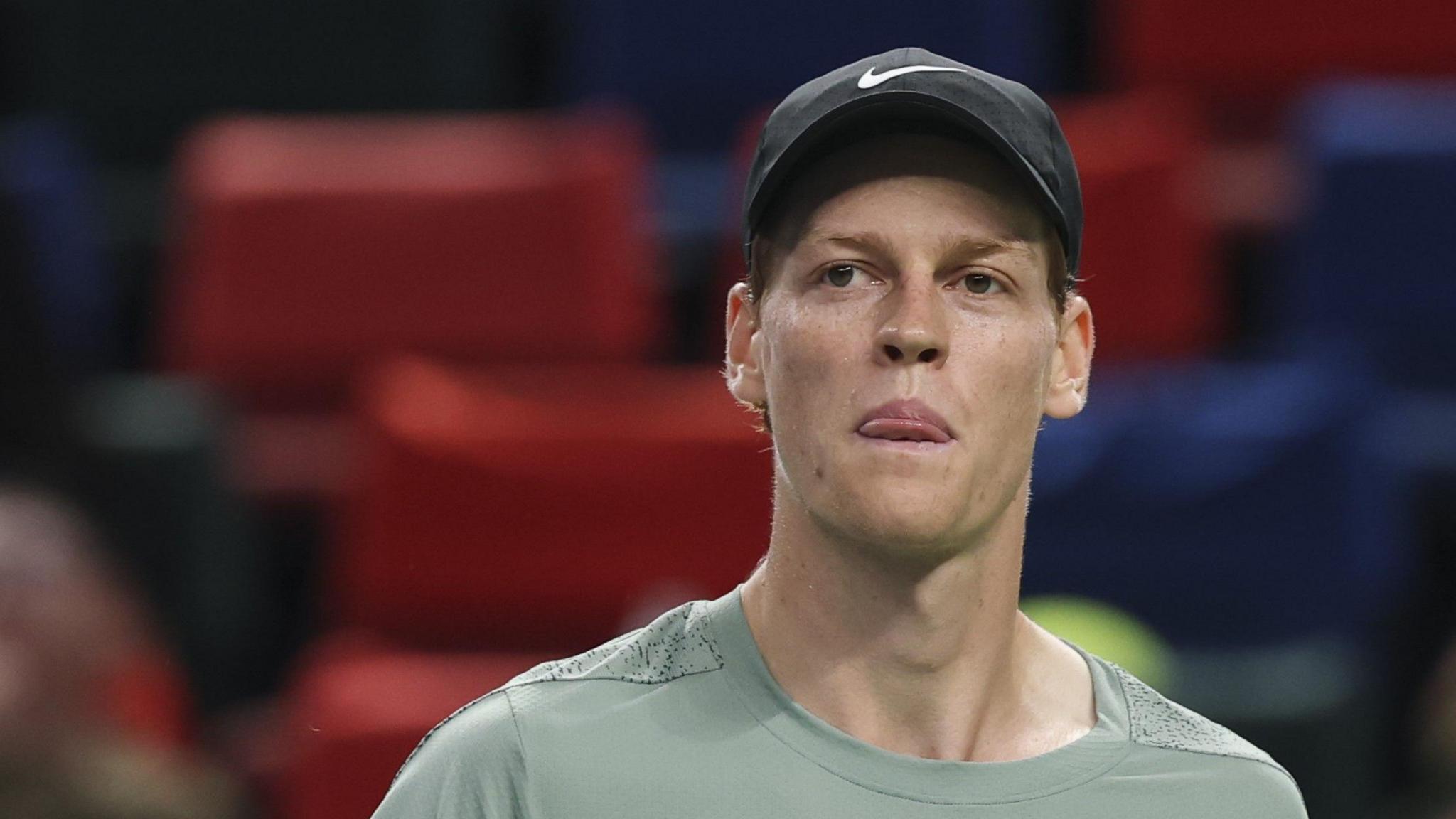 Image source, Getty Images
Image source, Getty Images
Since failing two drugs tests, Jannik Sinner has gone on to become the men's world number one and won his second career Grand Slam title at the US Open
Jonathan Jurejko
BBC Sport tennis news reporter
Italy's Jannik Sinner has enjoyed the most successful - and eventful - season of his career, having dominated the men's game while the case investigating his two failed doping tests rumbles on.
The reigning Australian Open and US Open champion, who won his seventh title of the season in Shanghai on Sunday, tested positive for clostebol in March.
An independent panel, which was presented the case by the International Tennis Integrity Agency (ITIA), accepted there was "no fault or negligence" attached to 23-year-old Sinner.
It said the world number one had provided a "credible" explanation and he was able to continue playing.
But the decision that Sinner bore no fault has been challenged by the World Anti-Doping Agency (Wada), which has launched an appeal to the Court of Arbitration for Sport (Cas).
No date has been set for the hearing.
"Whatever's going to happen, I just wish for it to be resolved as soon as possible," 24-time major champion Novak Djokovic said.
"This whole case is not helping our sport at all."
BBC Sport analyses the key questions at the heart of a complex subject.
Could Sinner still be banned?
Yes. Wada is seeking a ban of between one and two years for Sinner to be applied from the date of a Cas ruling.
Wada is an overarching independent body which produces the World Anti-Doping Code and ensures it is properly implemented.
In tennis, the ITIA applies the rules set out by Wada. It is the first time Wada has launched an appeal against a case led by the ITIA.
In the Sinner case, Wada believes the finding that the player held no fault or negligence is "not correct under the applicable rules".
Sinner did not dispute traces of clostebol were found in his urine test and Wada is not questioning his explanation of why the substance ended up in his system.
But it does believe the player must take a portion of the responsibility.
Will Sinner be stripped of his Grand Slam titles?
No. Wada says it is "not seeking a disqualification of any results" other than the sanctions which have already been handed out by the independent tribunal.
Sinner was stripped of the ranking points and prize money from his semi-final run at Indian Wells, where he failed the first test.
His two Grand Slam victories - at the Australian Open in January and the US Open title in September - remain unaffected.
When will Cas hear the appeal and when will a decision be announced?
Timeframes are never put on these proceedings, but experience of other cases referred to Cas suggests Sinner's may not be concluded for several months.
On 4 October, Cas confirmed it had received Wada's appeal and arbitration proceedings had started.
It said the "parties are exchanging written submissions" and "a panel of arbitrators that will decide the matter" is being formed.
Once constituted, the panel will issue procedural directions and hold the hearing.
The Cas panel's decision will be final and binding, although each party has the right to file an appeal to the Swiss Federal Tribunal within 30 days.
Sinner 'surprised' by World Anti-Doping Agency's appeal
What is clostebol?
Clostebol is an anabolic steroid that can be used to build muscle mass and enhance athletic performance.
It has been on Wada's list of prohibited substances since 2004.
Clostebol is an active ingredient in a dermatological cream or spray called Trofodermin, which is used to treat skin abrasions, cuts and wounds and is readily available over the counter in Italy.
According to Italian law, Trofodermin packaging must have a visible symbol indicating the presence of a Wada-banned substance.
What was Sinner's explanation?
The investigation accepted Sinner had been inadvertently contaminated with clostebol by his physiotherapist, Giacomo Naldi.
Sinner's team successfully argued Naldi had been applying Trofodermin - given to him by Sinner's fitness trainer Umberto Ferrara, who is a qualified pharmacist - to a cut on his own hand.
Naldo then carried out massage treatments on the player without gloves and the substance was transferred.
The ITIA's scientific experts agreed this was plausible.
Sinner had praised the professionalism of Naldi and Ferrera before announcing - shortly after the story became public - he was no longer "confident" working with them because of their "mistakes".
Why was Sinner allowed to continue playing?
Sinner was immediately given a provisional ban after each failed test, per ITIA rules.
The bans were lifted after one day and three days respectively because he successfully appealed against the decision.
The ability of Sinner's lawyers to react quickly, appealing on the same day they were informed of the failed tests, enabled him to carry on playing.
Sinner, who has won over £22m in career prize money and earned lucrative sponsorship deals with Nike and Gucci, has the benefit of being able to afford specialist legal representation - unlike many other players in similar situations.
Has Sinner been treated differently?
Questions have also been raised about the speed of the resolution and how the case was kept under wraps.
In terms of the speed of the process, Sinner admitted guilt and provided evidence which convinced the panel he had not doped intentionally.
That makes this case more straightforward to deal with. As soon as the panel accepted his explanation, he was able to continue playing.
Privacy was ensured, as per ITIA rules, once the provisional ban was lifted.
"All anti-doping cases are different, but the process is always consistent, and this case was dealt with according to the facts, not the player's ranking," an ITIA spokesperson told BBC Sport.
How has the tennis world reacted?
Several of Sinner's peers have questioned the handling of the case, while there has been support for him from others.
Australian former Wimbledon finalist Nick Kyrgios - himself a polarising figure - has been a leading critic, and Britain's Liam Broady was left "wondering about a lot of the things" in Sinner's story.
Tara Moore, a British player provisionally banned for two years while challenging a doping charge of which she was eventually cleared, suggested top players are "treated differently".
There have also been calls for greater "consistency" from both Djokovic and Roger Federer in the way every case - regardless of a player's ranking or wealth - is dealt with.
Norway's two-time major finalist Casper Ruud concluded there is "no discrimination" in favour of Sinner if "you have read the documents", while leading coach Dani Vallverdu said it "must be an absolute nightmare" for Sinner.

 Movie
Movie 2 months ago
51
2 months ago
51 
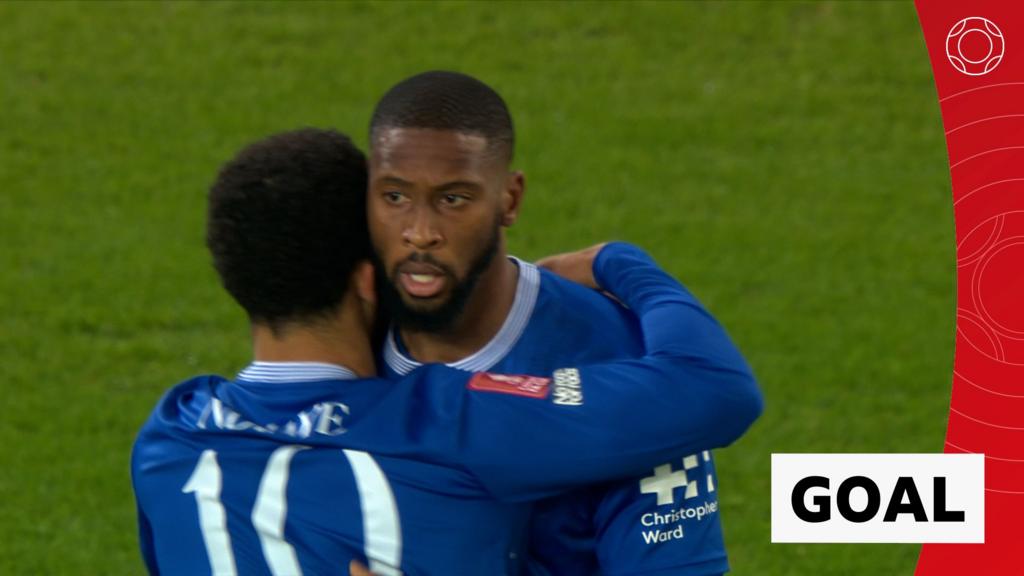
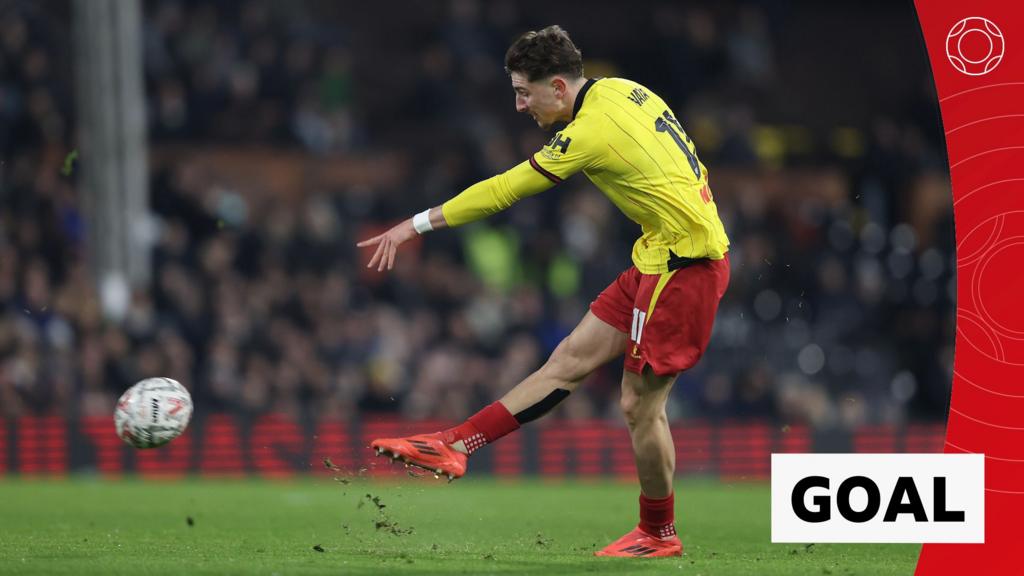
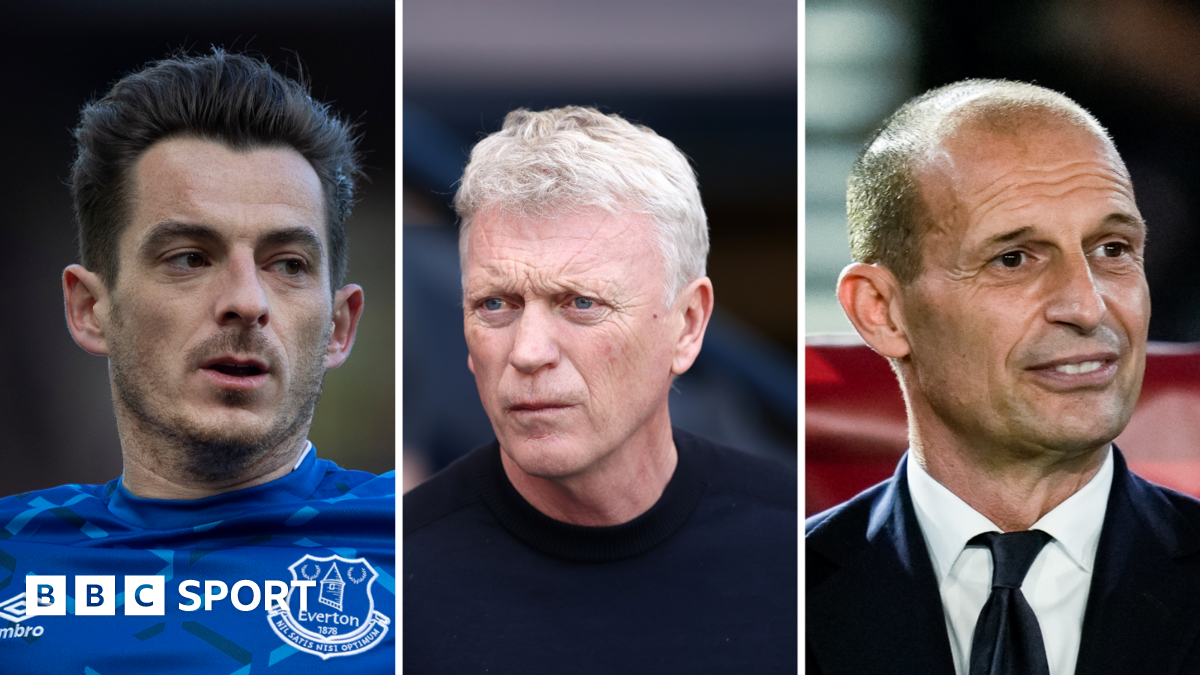
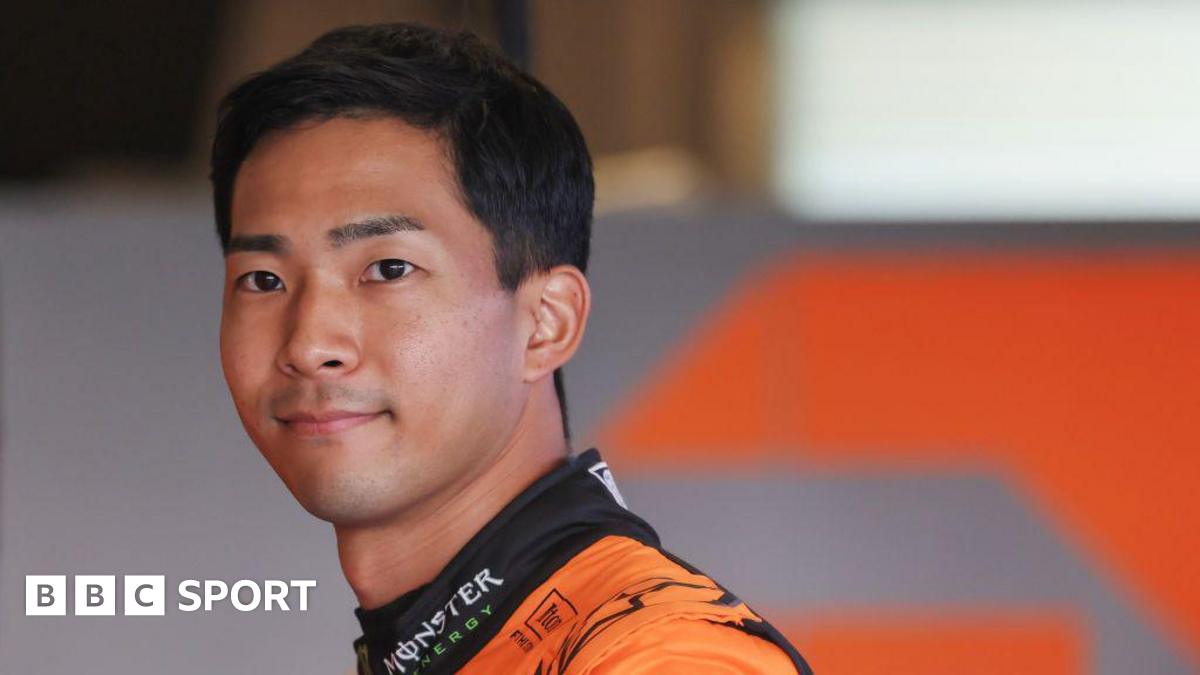
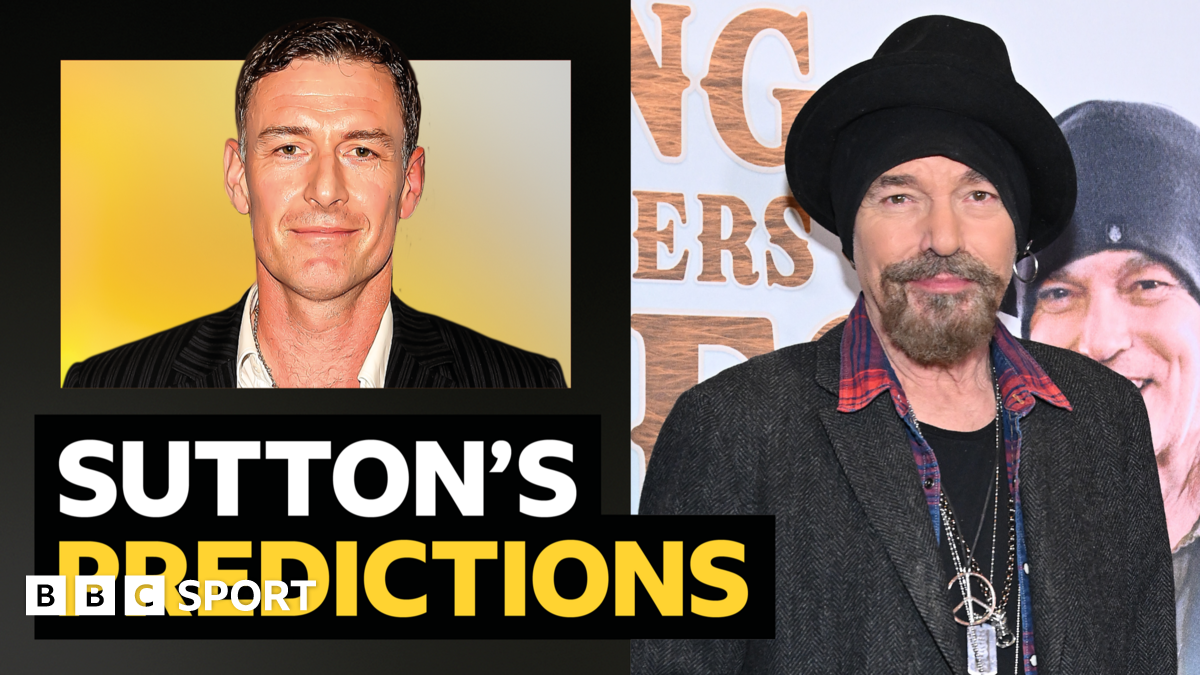

![Presidents Day Weekend Car Sales [2021 Edition] Presidents Day Weekend Car Sales [2021 Edition]](https://www.findthebestcarprice.com/wp-content/uploads/Presidents-Day-Weekend-car-sales.jpg)



 English (United States)
English (United States)